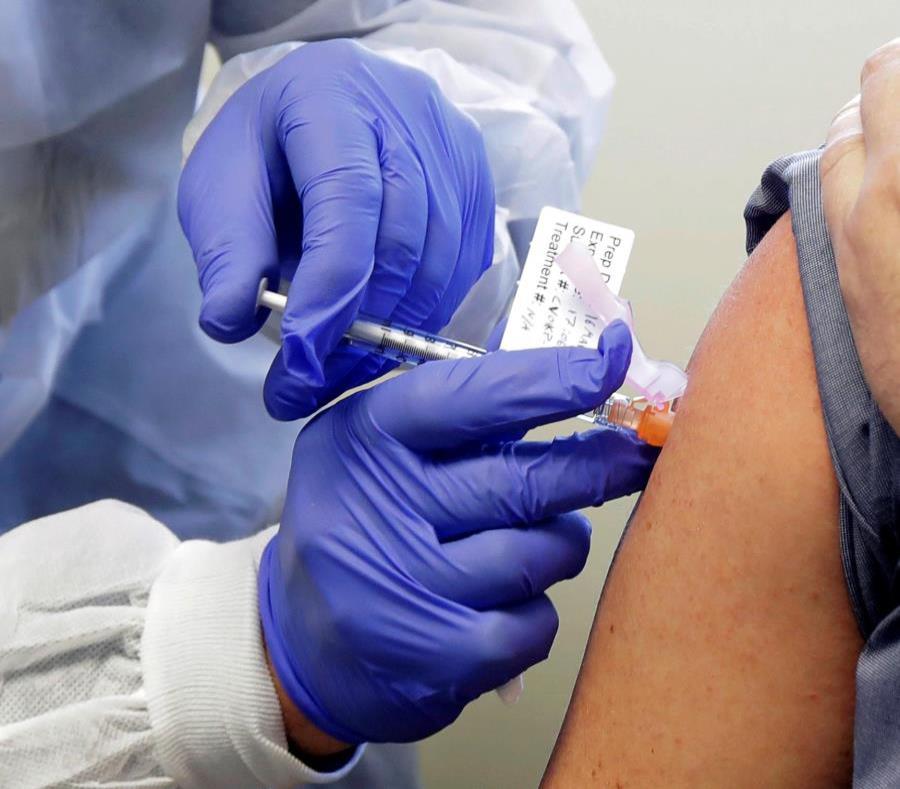On the threshold of the battle against COVID-19
Puerto Rico may participate in one of the clinical trials to find a vaccine
by By Marga Parés Arroyo
Puerto Rico could be part of history if local researchers are selected to participate in the clinical trials to find a vaccine against COVID-19.
The island has already taken a step forward with the invitation by both the National Institute of Health (NIH) and one of the companies leading part of these efforts to local researchers recognized for their collaboration in previous studies of other vaccines.
"We received an invitation (from the NIH) to see if we were interested in (participating in the studies of) the vaccine from (the company) Moderna," said Dr. Carmen Zorrilla, interim dean of research in the Department of Obstetrics and Gynecology at the University of Puerto Rico Medical Sciences Campus.
The researcher, recognized for having led the study that managed to eliminate the transmission of HIV from mother to child with AZT (Zidovudine), warned that the invitation came from the NIH, and there is interest and will to participate.
"We are in conversations, filling out paperwork to become one of the sites," she said, explaining that the study will include 20,000 participants in the United States, and 25 percent of them must be people over 65.
She said that if they reach an agreement, they will recruit people aged 18 or older who test negative for COVID-19. The study, she said, seeks to test whether the vaccine protects participants from the virus.
"I am really interested in participating. We have the capacity, structure, and staff. We are all ready (to begin)," she said and stressed that, after completing the required documents, the NIH evaluates and determines which sites will be part of the study.
Zorrilla announced that infectious disease expert Jorge Santana was also invited to participate in the research. "We were surveyed. (If selected), we will work together. We've worked on other vaccines before," she said.
According to the researcher, an efficacy study of a vaccine can take at least six months.
Moderna biotechnology company and the NIH announced that a study they began in March has produced neutralizing antibodies against COVID-19 that can block the virus.
Using novel technology, the company used RNA or the acid that carries genetic information, to enable the recipient organism to produce the same protein present in the virus. When a person's immune system recognizes it, it designs a mechanism to attack it.
The first stage of the clinical analysis involved 45 people, aged 18 to 55, who received two doses, 28 days apart.
Earlier this month, the company was authorized by the federal Food and Drug Administration (FDA) to begin the second phase of the study. The company's goal is for phase three to begin in July, with the expectation that the final product will be available in early 2021 if safety and efficacy tests remain positive.
"The studies released say the vaccine induces antibodies, but we don't know if they are neutralizing. We would have to wait (for the person) to be exposed (to the virus)," Zorrilla said.
Dr. Javier Morales, director of Clinical Research in Puerto Rico, said he has also received approaches to participate in clinical trials of COVID-19 vaccines, however, he did not specify which ones, due to confidentiality clauses that prevent them from doing so. The infectious disease expert said that Pfizer, Johnson & Johnson, and Moderna are some of the companies leading these efforts, with different concepts.
He explained that, in the first phase of any vaccine study, a small group of participants is measured to validate the product's toxicity, side effects, and dosage. "The only way to know if it works or not is to test it in a place with that disease," he said.
He added that, in the second and third phases of these tests, some participants receive the vaccine being studied and others only receive a placebo so that the product's results can be compared. "Testing who gets contaminated and who doesn't take months. That's why the vaccines take time to get to the market," said Morales, noting that production techniques for vaccines vary, from attenuated virus, inactive virus, and genetic engineering, among others.
Morales agreed on the importance of Puerto Rico being part of the studies of the vaccines against COVID-19. "It is important that Puerto Rico is in all possible studies worldwide. We produce quality research and clinical studies here. There's a race to reach this vaccine. Hopefully, Puerto Rico, no matter who the researcher is, will get in," he said.